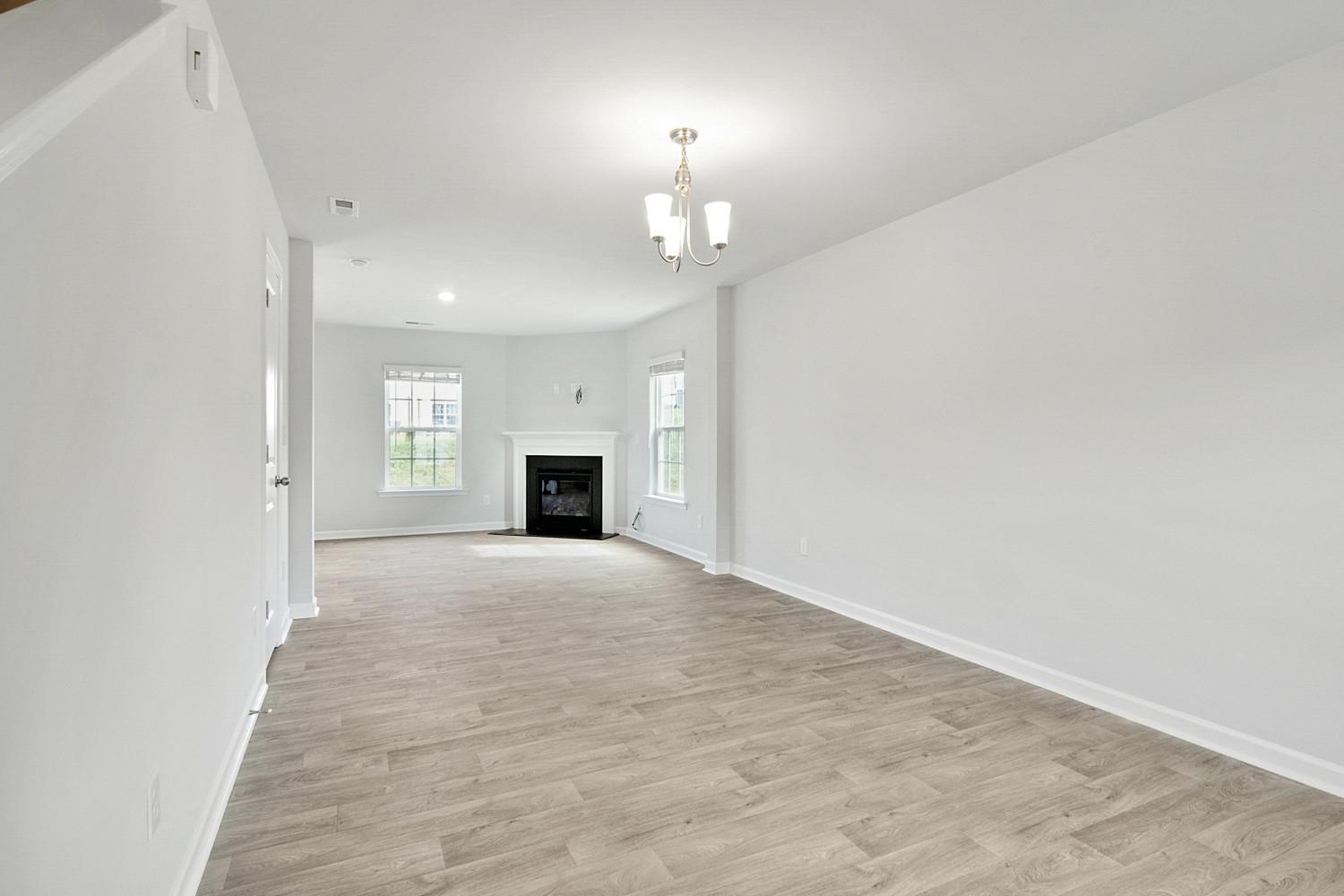Conventional Loan vs. DSCR Loan: Which is Right for You?
Investing in real estate involves making critical financing decisions that can significantly impact your investment returns, cash flow, and long-term wealth-building strategy. If you don’t know the difference between DSCR loans and conventional loans, you could be making a mistake that’s critical to your cash flow and overall income.
Understanding the fundamental differences between these loan types is essential for making informed decisions that align with your investment goals.
What is a Conventional Loan?
A conventional loan is a traditional mortgage product typically offered by banks, credit unions, and other mainstream lenders. These loans follow guidelines established by government-sponsored entities (GSEs) like Fannie Mae and Freddie Mac. Conventional loans primarily evaluate the borrower’s personal financial health, including credit score, income, debt-to-income (DTI) ratio, and employment history.
Key Characteristics of Conventional Loans:
- Credit Score Requirement: Typically 620 or higher (700+ preferred for best rates)
- Debt-to-Income Ratio: Usually below 43%
- Income Verification: Requires comprehensive documentation including tax returns, pay stubs, W-2s, and employment verification
- Down Payment: As low as 3% for primary residences, but typically 15-25% for investment properties
- Property Types: Single-family homes, multi-family units (up to 4 units), condos, primary and investment properties
- Loan Limits: Determined annually by the Federal Housing Finance Agency (FHFA) and varies by location
- Personal Liability: Always recourse loans tied to borrower’s personal credit
- Private Mortgage Insurance (PMI): Required for loans with less than 20% down payment, but can be removed when equity reaches 20%

What is a DSCR Loan?
A Debt Service Coverage Ratio (DSCR) loan is a specialized non-QM (non-qualified mortgage) designed specifically for income-producing investment properties. Instead of focusing heavily on personal income or credit, a DSCR loan primarily evaluates a property’s ability to generate sufficient cash flow to cover its mortgage payments.
The DSCR ratio is calculated by dividing the property’s net operating income (NOI) by its annual debt service (principal + interest payments):
INSERT DSCR CALCULATION (WHICH IS SAVED IN MEDIA LIBRARY)
A DSCR of 1.0 indicates that the property generates exactly enough income to cover its debt obligations. Most lenders prefer ratios of 1.25 or higher to provide a safety margin, though some lenders (like Defy Mortgage) offer flexibility with DSCRs as low as 0.75.
Key Characteristics of DSCR Loans:
- Credit Score Requirement: Generally between 620 and 700 (some lenders accept scores as low as 620)
- Debt-to-Income Ratio: Not considered — relies on property income instead of personal income
- Income Verification: None required (no W-2s, pay stubs, or tax returns)
- Down Payment: Typically 20-25%, though some lenders allow as low as 15%
- Property Types: Income-producing properties including single-family rentals, duplexes, multi-family units, Airbnbs, and short-term rentals
- Loan Limits: Often flexible — some lenders have no maximum loan amount
- Ownership Flexibility: Allows property purchases through an LLC or other business entities
- Personal Liability: Can be structured as recourse or non-recourse depending on lender terms
Comprehensive Comparison: Conventional Loan vs. DSCR Loan
Advantages of DSCR Loans for Real Estate Investors
DSCR loans offer unique benefits tailored specifically to real estate investors:
1. Easier Qualification Process
- Ideal for Self-Employed: Perfect for self-employed investors or those with complicated tax returns and write-offs
- No Income Verification: No need to provide tax returns, W-2s, or pay stubs
- Focus on Property Performance: Qualification based on the property’s income potential rather than personal income
2. Streamlined Application Process
- Faster Closings: Significantly reduced documentation requirements lead to quicker approvals and closings
- Less Administrative Burden: Minimal paperwork compared to conventional loans
- Simpler Underwriting: Focus on property metrics rather than complex personal financial analysis
3. Portfolio Expansion Capabilities
- No Strict Limits: No hard cap on how many DSCR loans an investor can hold, enabling rapid portfolio growth
- Scalability: Easier to scale your real estate portfolio without hitting conventional loan limits
- Multiple Property Types: Flexibility to finance various investment property types including short-term rentals
4. Asset Protection Benefits
- LLC Ownership: Properties can be purchased and held in LLCs, providing personal liability protection
- Business Entity Structure: Supports proper business structuring for real estate investments
- Separation of Personal and Business Finances: Creates clear division between personal and investment activities
5. Flexible Terms and Options
- Interest-Only Payments: Many DSCR lenders offer interest-only payment options for initial periods
- Lower DSCR Thresholds: Some lenders offer DSCR ratios as low as 0.75, allowing for negative cash flow properties with appreciation potential
- Customized Solutions: Terms can often be tailored to specific investment strategies
When to Choose a Conventional Loan
Conventional loans remain the optimal choice in several situations:
- Primary Residence Financing: You’re purchasing a home you plan to occupy as your primary residence
- Strong Traditional Financial Profile: You have excellent credit, stable W-2 income, and a strong debt-to-income ratio
- Rate Sensitivity: You prioritize securing the lowest possible interest rate
- Long-Term Holding Strategy: You plan on a long-term holding with minimal future refinancing needs
- First-Time Homebuyers with Good Credit: NAR data shows increasing numbers of first-time buyers are successfully using conventional financing
Low Down Payment Conventional Options
It’s important to note that Fannie Mae and Freddie Mac have been expanding access to conventional financing with lower down payment requirements:
- Fannie Mae’s HomeReady Program: Offers 97% LTV loans (3% down) for borrowers with incomes up to 80% of area median income
- Freddie Mac’s Home Possible Program: Similar 97% LTV loans for income-qualified borrowers
- Standard 97% LTV Loans: Available even without income restrictions in some cases
These programs have contributed to the shifting landscape, with more first-time buyers choosing conventional over FHA financing.
When to Choose a DSCR Loan
DSCR loans are particularly well-suited for dedicated real estate investors who focus on building a portfolio of income-producing properties. They’re also ideal for self-employed borrowers with complex tax situations and significant write-offs. Investors who prefer a business-oriented approach — keeping their real estate investments separate from personal finances — also benefit greatly from DSCR loans.
Additionally, these loans are tailored perfectly for short-term rental investors, such as those operating Airbnb or VRBO properties. DSCR loans facilitate rapid portfolio expansion, allowing investors to scale their holdings quickly.
Lastly, they’re an attractive financing option for foreign nationals investing in U.S. real estate, given the streamlined qualification process.
Cost Comparison: Financing a $300,000 Investment Property
Let’s examine the practical cost differences between these loan types for a $300,000 investment property:
Conventional Loan on $300,000 Property
- 20% down payment: $60,000
- Loan amount: $240,000
- Interest rate: 7.25% (30-year fixed)
- Monthly principal and interest: $1,637.22
- Property taxes and insurance: $350/month
- Total monthly payment: $1,987
- Income qualification required: Approximately $65,000 – $75,000 annual income

DSCR Loan on $300,000 Property
- 20% down payment: $60,000 (some lenders will go down to 15% down pending certain DSCR ratio criteria)
- Loan amount: $240,000
- Interest rate: 7.95% (30-year fixed)
- Monthly principal and interest: $1,752.68
- Property taxes and insurance: $350/month
- Total monthly payment: $2,102.68
- Income qualification required: None (property must generate sufficient rental income)
- Required monthly rental income (0.75 DSCR): $1,577
As you can see, in order to purchase the property with a conventional loan, you would need an income of at least $65,000 – and a DTI ratio below 43% (which is highly individual, but another barrier to entry).
If you instead buy the same property with a DSCR loan, it only needs to be able to generate $1,577/month in rental income. With the typical asking rent currently north of $1,900 in the United States, this makes purchasing properties much easier.
Making Your Decision: Conventional Loan vs. DSCR Loan
When deciding between conventional and DSCR financing, consider these crucial factors:
- Investment Strategy: Long-term buy-and-hold vs. rapid portfolio growth
- Personal Financial Situation: W-2 employee vs. self-employed or complex income
- Property Type: Primary residence vs. investment property or short-term rental
- Ownership Structure: Individual ownership vs. LLC or other business entity
- Future Plans: One-off investment vs. building a real estate portfolio
- Cash Flow Goals: Immediate positive cash flow requirements vs. appreciation focus
- Rate Sensitivity: Prioritizing lowest rate vs. flexibility and ease of qualification
The Bottom Line
Both conventional and DSCR loans have their place in a real estate investor’s toolkit. The optimal choice depends on your specific investment goals, financial situation, and long-term strategy.
For traditional homebuyers and those with strong W-2 income and credit profiles, conventional loans typically offer the most favorable terms and lowest costs. The increasing trend of first-time buyers successfully using conventional loans rather than FHA loans demonstrates the growing accessibility of these products.
For dedicated real estate investors — especially those who are self-employed, have complex tax situations, or plan to build substantial portfolios — DSCR loans offer unparalleled flexibility, simpler qualification processes, and greater scalability.
The most successful real estate investors often utilize multiple financing strategies across their portfolios, selecting the optimal loan structure for each specific property and investment phase.
FAQs About Investment Property Financing
Q: Can I use a DSCR loan for my primary residence?
A: No, DSCR loans are exclusively for income-producing investment properties. For primary residences, conventional, FHA, or other residential mortgage options are appropriate.
Q: Are DSCR loans always interest-only?
A: No, but many DSCR loans offer interest-only payment options for an introductory period, typically 5-10 years. After this period, the loan typically converts to a fully amortizing structure.
Q: What credit score do I need for a DSCR loan?
A: While requirements vary by lender, most DSCR loans require a minimum credit score of 620-640, with better terms available for scores above 680. Some lenders accept scores as low as 600 in certain situations.
Q: Are DSCR loans reported on my personal credit report?
A: Typically not, especially when the property is purchased through an LLC or other business entity. This “credit isolation” is one of the advantages of DSCR financing for active investors.
Q: Can I refinance a conventional loan into a DSCR loan?
A: Yes, many investors start with conventional financing and later refinance into DSCR loans as they transition to more active investing or as their tax situations become more complex.
Q: How many conventional loans can I have for investment properties?
A: Fannie Mae and Freddie Mac typically limit borrowers to 10 financed properties. With DSCR loans, there’s generally no set limit on the number of properties you can finance.
Q: What happens if my rental property doesn’t achieve the minimum DSCR?
A: If your property’s income doesn’t meet the minimum DSCR requirement, lenders may require a larger down payment, offer a higher interest rate, or decline the loan. Some lenders offer options for properties with DSCRs below 1.0, but with more stringent terms.
Q: Can foreign nationals obtain DSCR loans for US investment properties?
A: Yes, many DSCR lenders work with foreign nationals, making these loans an excellent option for international investors interested in US real estate.
Q: What are the best alternatives to DSCR loans?
A: The best alternatives are bank statement loans, foreign national loans, interest-only mortgages, and profit and loss loans. Check out our extensive guides on each.







